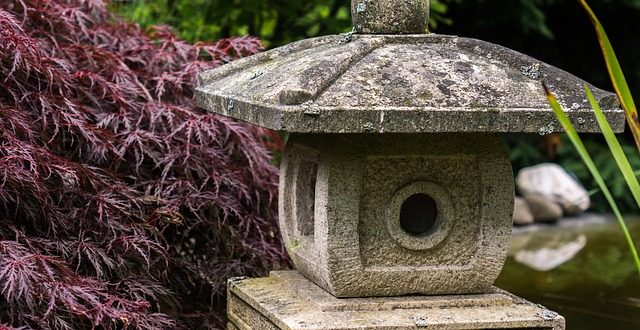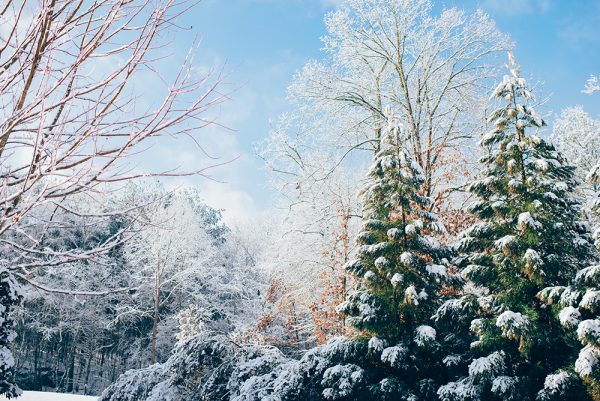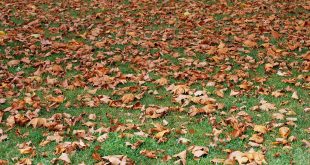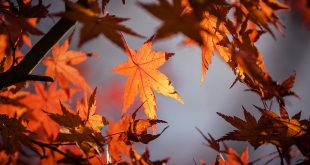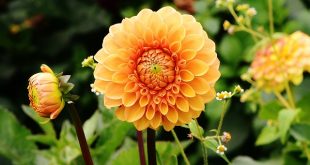The Gardeners Club have teamed up with Nick Sunderland from Universal Feng Shui to bring you a short overview of the practice of Feng Shui for the garden.
Feng Shui
Feng Shui translates into English as Wind and Water, and is a taoist Philosophy, which is part of Chinese tradition. It is understood by the Chinese to be “Living In Harmony”
Using the principal in the home, office or garden it can help to harmonise the environment and balance the surrounding energy for the occupants. The correct balance of the five main elements of Fire, Earth, Metal, Water and Wood is said to improve the three main aspects of your life – Health, Wealth and Happiness.
“If you live in a home surrounded by a garden that is lush and vibrant, with a balance of light and shade, you will enjoy great good fortune. Your family will be happy; relationships will be harmonious; your career will flourish; and your business will prosper. You will have robust good health and great enthusiasm for life and living. The Chinese describe this as good Feng Shui for it means that the energies that surround your home are balanced and beneficial”. Feng Shui for Gardens, by Lillian Too.
Feng Shui planting guide
Use colour to enhance an area. Follow the Ba Gua guide to planting, place the ba gua according to the direction of the house as you would in compass school analysis, and the sectors will be the same in the garden. So North is actual North, South actual south, etc. draw out the sectors on the garden plan and start looking at the ideas here over the next few months.
According to feng shui, certain plants have a more beneficial influence on the chi of your environment than others. Plants growing upward are much preferable to plants growing downward. This symbolises vibrant growth.
A colour (or colours) can represent each section of the Ba Gua. You can enhance a particular area of your garden by planting an item of that same colour within the section, the same as aspiration Feng Shui in the home.
Colourful plants
North
This area represents your career. Plant black blooms or try building a small pond in this area of your garden.
North-East
This area represents knowledge. Deep blues, greens and blacks should be planted in this area as it is situated between the family and career area’s.
North-West
This area represents Benefactor’s. Situated between children and career you want to be planting white, grey, silver and black plants.
East
This area represents family and health. Greens like a tall evergreen or healthy shrub represent family and the colour yellow, such as yellow roses, chrysanthemums and marigolds represent health.
South
This area represents fame. Red geraniums or roses or indigenous plants should be planted here.
South-East
This area represents wealth. Situated between family and fame you want green, red and purple colours here.
South-West
This area represents marriage. Situated between fame and children, use any colours between white and red, such as pink.
West
This area represents children. Plant white plants such as Gardenia or night-blooming jasmine.
Plants and shapes
Wealth
For wealth, plant trees with circular leaves. In China, there is a particular tree called the money tree, with leaves that look like coins or money. The silver dollar tree, a member of the eucalyptus family, has similarly rounded leaves. Either of these varieties would be a good choice to plant in the wealth area of your yard
Family and fame
For family and fame plant bamboo. Bamboo comes in hundreds of varieties. It is a very aggressive, strong plant that grows very tall. The family area would profit from this addition. If you want to become well known and get a good reputation quickly, plant some vigorously growing bamboo in your fame area.
Good luck
For good luck plant oranges, apples and persimmons trees. Orange trees are good luck and represent auspiciousness while apple trees represent peace and persimmons represent prosperity.
Take Care
In China, it is considered bad luck to plant a raspberry tree in front of the house because the pronunciation for this type of tree is the same as the pronunciation for the word ‘funeral’. You do not want people to point or refer to your house as having the ‘funeral tree’. This is considered a very bad sign.
Weeping Plants
The willow is not a good sign because it has the same Chinese pronunciation as ‘washing away’ or ‘draining down’. Your money, all your wealth, will go down. The juniper, for example, is a lovely tree, with leaves gracefully falling down toward the ground. Be careful where you place a plant that weeps. Symbolically, the plant evokes thoughts of sadness or remorse, characteristics therefore you do not want to emphasise either in your garden or for that matter in your life. You can showcase a plant such as this one but take care to note in which sector you plant it. Certainly this shouldn’t be your first choice for an area such as your wealth corner! A better position might be near a reflecting pool, to create a space for quiet, relaxed introspection. Wherever you choose, make sure that there is a predominance of vivid, upward-growing plants in the vicinity.
Statues
Use Full Bodied Statues, if you place a statue that has a spiritual or sentimental significance in your garden, every time you gaze upon the item your chi will be enhanced by that emotion. If the statue is religious in meaning, it’s best to have it facing a gate so that the statue gives you protection. From the perspective of Feng Shui, it is preferable to have the whole statue (including the body) rather than just the head.
 Gardeners Club The Gardeners Club is a free to join online club for everyone with an interest in gardening and gardens.
Gardeners Club The Gardeners Club is a free to join online club for everyone with an interest in gardening and gardens.
